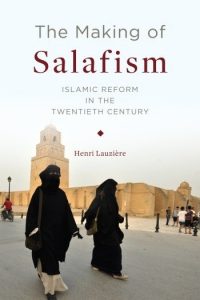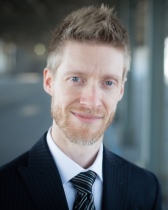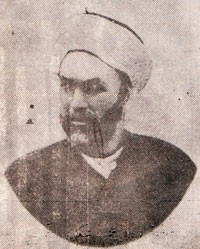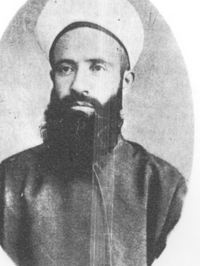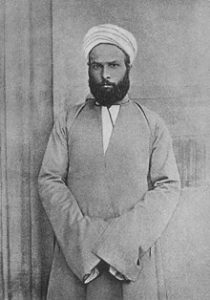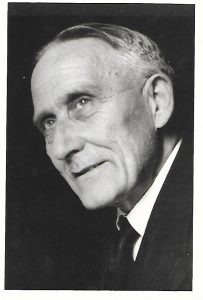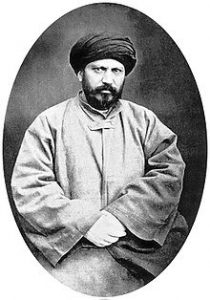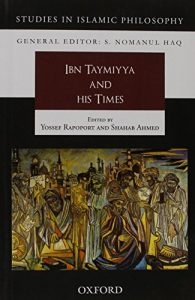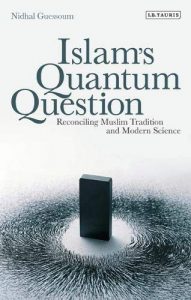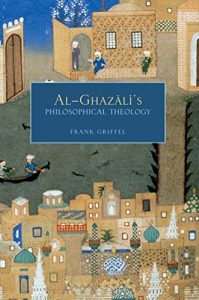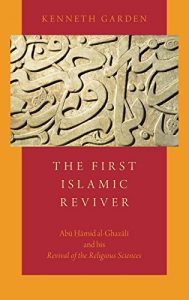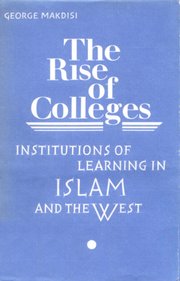Henri Lauzière’s 2016 book The Making of Salafism is about how Salafism as we know it today was invented in the 20th century. I discovered Lauzière’s work through reading his 2010 article “The Construction of Salafiyya: Reconsidering Salafism from the Perspective of Conceptual History,” in the International Journal of Middle East Studies. That article overturned many of my assumptions about Salafism that are commonly repeated today by Muslim intellectuals: that it somehow started with Muhammad Abduh (1849 – 1905) and that later on it was “stolen” by Saudi Arabia’s Wahhabis.
Lauzière 2010 article presents convincing evidence that Muhammad Abduh never considered himself a “Salafi”, and that the people who originally used the “Salafi” epithet did not usually have today’s Salafism in mind. On the one hand there were scholars like the Syrian Jamāl al-Dīn al-Qāsimī (1866 – 1914) and the Iraqi Maḥmūd Shukrī al-Ālūsī (d. 1924) who stood for modernism, criticized the Wahhabis, and considered themselves a followers of theological Salafism, which Western scholars today call Traditionalism.
This school of thought took its inspiration from Aḥmad ibn Ḥanbal (known reverentially as Imam Aḥmad) and among its followers are the imams al-Bukhārī and Muslim and many of the best known members of the Shāfiʿī and Ḥanbalī schools: Abū Ḥāmid al-Isfarāʾīnī (Shāfiʿī), Abū Isḥāq al-Shīrazī (Shāfiʿī), Ibn al-Jawzī (Ḥanbalī), Ibn Ṣalāḥ al-Shāhrazūrī (Shāfiʿī), Imam al-Nawawī (Shāfiʿī), Shams al-Dīn al-Dhahabī (Shāfiʿī), Ibn Taymīya (Ḥanbalī) and Ibn al-Qayyim (Ḥanbalī).
This theological Salafism is nothing new within Islam, it is in fact one of the oldest intellectual strains within it and, unlike today’s Salafism, was never a challenger to the madhhabs (schools of thought).
In parallel to such theological Salafis, a Salafiyya Bookstore was established in Cairo by Muḥib al-Dīn al-Khaṭīb (d. 1969) and Abd al-Fattāḥ Qatlān (d. 1939). It is clear from the activity of this bookstore that they did not have today’s Salafism in mind either when they used the “Salafi” title, whether in naming their bookstore or their magazine. They published books by philosophers like al-Farabi and were highly modernist in their thinking. “Salafism” to them was the use of Islam’s ancient heritage (including philosophy and kalām, disliked Islamic fields of study according to today’s Salafis) in order to promote a sense of hope and pride among the colonized Muslims of the time.
At this point Rashid Rida (1865 – 1935), a disciple of Muhammad Abduh, comes on the scene to promote his vision of Islamic reform. While at first he continued to promote Muhammad Abduh’s teachings, in the 1920’s he started to increasingly describe himself and his movement as “Salafi”. For him, claiming to be “Salafi” was a way of breaking away from the traditional schools of thought without being called a deviant or liberal. By claiming to follow a version of Islam even more authentic and original than the version followed by the scholars of his day, he could break away while maintaining his credentials as a respectable Muslim thinker.
Things changed with the establishment of the Saudi state and their conquest of Mecca and Medina in 1924. Rashid Rida considered the Saudi state the only viable successor state to the Ottomans and apparently put all of his hopes in them. He started to defend the Wahhabis and their actions, apparently thinking that their ways of thought could eventually be softened and modernized (he was quite wrong).
With the establishment of the Saudi state, the Salafiyya Bookstore largely abandoned its modernist tendencies. With the involvement of Rida, a Salafiyya Press and Bookstore was established in Mecca in 1927 that was little more than a Wahhabi propaganda press, printing works like Ibn Bishr’s pro-Wahhabi History of Najd, in which the slaughter of thousands of innocent Iraqi civilians is proclaimed as a great victory (the 1801 Wahhabi sack of Karbala). I recently saw a quotation from Saudi Arabia’s founder Ibn Saud (1871 – 1953) saying that not only was he not sorry that the Wahhabis had engaged in that massacre, but that he would happily do it all over again if he had the chance. This explains Winston Churchill’s opinion of him:
The British recognised Ibn Saud's control of Arabia, and by 1922 his subsidy was raised to 100,000 a year by Colonial Secretary Winston Churchill. At the same time, Churchill described Ibn Saud's Wahhabis as akin to the present-day Taliban, telling the House of Commons in July 1921 that they were 'austere, intolerant, well-armed and bloodthirsty' and that 'they hold it as an article of duty, as well as faith, to kill all who do not share their opinions and to make slaves of their wives and children. Women have been put to death in Wahhabi villages for simply appearing in the streets. It is a penal offence to wear a silk garment. Men have been killed for smoking a cigarette.'
However, Churchill also later wrote that 'my admiration for him [Ibn Saud] was deep, because of his unfailing loyalty to us', and the British government set about consolidating its grip on this loyalty. In 1917 London had dispatched Harry St John Philby--father of Kim, the later Soviet spy--to Saudi Arabia, where he remained until Ibn Saudi's death in 1953. Philby's role was 'to consult with the Foreign Office over ways to consolidate the rule and extend the influence' of Ibn Said. A 1927 treaty ceded control of the country's foreign affairs to Britain.
Professor Mark Curtis, Secret Affairs: Britain's Collusion with Radical Islam
Throughout this time, there was no such thing as “Salafism” the way we understand it today. Salafism was a fluid and largely undefined concept that started as a movement to promote the greatness of the ancients of the Islamic world as a way of fighting off the cultural influence of the West.
Rashid Rida became increasingly pro-Wahhabi and did everything in his power to support the Saudi state, most importantly sending his own disciples to work in the Saudi educational establishment in the Hijaz. The people of Mecca and Medina had no love for the Wahhabis and considered them backward and ill-educated, while they respected Egyptian scholars and intellectuals.
Rashid Rida never became a Wahhabi himself. He continued to maintain his reformist views that the Wahhabis had no interest in while also continuing to write apologetics in support of the Wahhabis.
The Making of Salafism
That brings us to Lauzière’s 2016 book The Making of Salafism: Islamic Reform in the Twentieth Century. This monograph expands on the 2010 article but adds a major new element with its focus on the career of Muhammad Taqi-ud-Din al-Hilali, the Western-educated Moroccon Sufi who became a modernist reformist and disciple of Rashid Rida only to become increasingly Wahhabized over the decades until he became one of the best known figures of the international Wahhabi mission.
Lauzière starts with a discussion of the fact that “Salafism” as we understand it today was completely non-existent before the 20th century. Salafi claims about the existence of a “Salafi” doctrine in the works of great scholars like Ibn Taymiyya are misplaced (although I believe seeds for today’s Salafism do exist in his writings–for example in his refusal to be called a Ḥanbalī, wherein he refused to be defined by madhhab boundaries similar to today’s Salafis). Salafism to them was the well-known Traditionalism I mentioned earlier; it simply meant to refuse to engage in philosophical speculation about the nature of God. It was in no shape or form a worldview that defined everything, nor was it a competitor to the traditional madhhabs. As late as the first two decades of the 20th century, we have textual evidence from Nuʿmān al-Ālūsī, Jamāl al-Dīn al-Qāsimī and Muhammad Abduh using “Salafism” to refer only to theological Salafism. Later Rida tried to claim that Abduh was a Salafi in the modern sense, but the complete lack of evidence to that, and evidence to its contrary, show that this was just an effort to revise history.
A comical misunderstanding
The great French Orientalist Louis Massignon (1883 – 1962) was in contact with Jamāl al-Dīn al-Qāsimī and other scholars and was receiving a magazine published by the Salafiyya Bookstore. In a 1925 paper, Massignon tried to make sense of this new “Salafi” movement and attributed it to Muhammad Abduh and his mentor Jamal al-Din al-Afghani (1838 – 1897). He considered it a reformist and modernist movement founded by these two scholars. This myth of a “reformist Salafism” that continues to be repeated today appears to have originated here with Massignon.
ʿAllāl al-Fāsī (1910 – 1974), a Moroccan political activist and religious intellectual, appears to have been inspired by Massignon’s writings on Salafism so that he took it up, later becoming one of the main representatives of “modernist Salafism”, which he believed had started with al-Afghani and Abduh.
This reformist Salafism was everything Massignon thought it was: a movement of religious intellectuals who admired the West, desired reform and wished to restore the glory days of Islamic civilization. Later Westerners who tried to study Salafism really believed that Salafism had started as a reformist movement because they knew of prominent people like al-Fāsī who called themselves Salafis.
The reality, of course, was that al-Fāsī had been misled by Massignon’s erroneous writings about the existence of a modernist movement named Salafism into adopting that form of Islam.
Therefore the idea that Salafism was “hijacked” by the Wahhabis, as Khaled Abou El-Fadl states in a 2001 article, is incorrect because there was no Salafism at the time to be hijacked. There was one group that called itself Salafi but used it only in the theological sense, as al-Qāsimī did. There was also a modernist group, the Moroccan Salafis, who had taken up the “Salafi” epithet based on Massignon’s writings. There was also Rida, who started to take up the “Salafi” label in the 1920’s despite having no clear idea what exactly it had to mean. He considered the Wahhabis the Islamic world’s best hope for fighting colonialism and therefore defended them despite his misgivings about their beliefs and actions and sometimes wrote absurd articles in which he portrayed the Wahhabis as not so different from the modernist readers of his journal al-Manar.
Muhammad Taqi-ud-Din al-Hilali
Muhammad Taqi-ud-Din al-Hilali (1893 – 1987) is best known in the West for the Saudi-sponsored translation of the Quran known as The Noble Quran, which was written by Muhammad Muhsin Khan and al-Hilali, sometimes referred to as the Hilali-Khan translation. Al-Hilali’s career is a good representation of how Salafism became the Salafism we know today. Al-Hilali’s career is one of the central themes of Lauzière’s book.
Al-Hilali was originally a Sufi of the Tijaniyya order. In explaining his abandonment of Sufism, al-Hilali claimed that at one point (in the late 1910’s perhaps or early 1920’s), while praying on a cold night in the desert, he had a vision of the Prophet Muhammad PBUH in which the Prophet instructed him to study religious science. When al-Hilali asked him whether to study bātin science (mysticism) or ẓāhir (non-mysticism-related Islamic studies), the Prophet says to study the ẓāhir.
Al-Hilali arrived in Egypt in 1922 and soon became a student of Rashid Rida. Later he traveled to India and Iraq. As part of the support of Rida and his disciples for the Saudi state, al-Hilali was invited to work as a teacher in the Saudi educational establishment in 1927. He became faculty supervisor at the Prophet’s Mosque in Medina.
At this time al-Hilali was extremely anti-Sufi and considered Sufism an evil and corrupt doctrine. When he discovered that one of the professors at the Prophet’s Mosque was a Sufi (Alfa Hashim), he wrote an anti-Sufi polemic and gave it to a Wahhabi judge, requesting that Hashim be fired. Hashim, in order to absolve himself from al-Hilali’s accusations, was made to write an anti-Sufi tract in which he condemned various doctrines of the Tijaniyya order.
When a Wahhabi scholar Ibn Bulayhid (d. 1940) discovered that al-Hilali was teaching that the earth is round, he made a big fuss and called it a bidʿa (heretical innovation), saying that the proper Islamic doctrine is that the earth is flat. He ordered al-Hilali and Hamza (another Egyptian and Rida disciple) to repent. The rest of the Wahhabi faculty started to treat the two of them as deviants and heretics. Al-Hilali managed to find supporting evidence from Ibn Taymiyya and Ibn al-Qayyim’s writings on the earth being round, which made Ibn Bulayhid calm down, although he never admitted to having erred. Rida had to assure his readers in al-Manar that not all Wahhabis believe that the earth is flat.
Decades later, al-Hilali voiced support for Ibn Baz’s fatwa in which Ibn Baz declared that (a) the earth is flat and (b) anyone who disagrees with that can be put to death. Al-Hilali spoke French, had spent years in Europe and was very familiar was Western science (and early in his career worked to promote it). It seems unlikely that he would have really accepted the earth’s flatness, therefore his support for Ibn Baz’s fatwa appears to have been nothing but an effort to ingratiate himself with this all-important Saudi religious authority. It is, however, not impossible that later in his life he became so Wahhabized that he could convince himself to prefer Wahhabi “truths” to mere scientific truths.
In 1927 Rida had changed his moderate reformist tone so that he start to publish anti-Shia articles by al-Hilali. Rida had hoped that his disciples could spread his ideals of balanced reform among the Wahhabis. But quite the opposite happened. In their eagerness to fit in within the Saudi establishment, nearly all his disciples became increasingly Wahhabized.
Between 1930 and 1950 al-Hilali lead a double public life. On the one hand, he supported anti-colonial efforts among all Muslims without caring too much about how deviant their religious doctrines were according to Wahhabi standards. On the other hand, he continued to publish polemics in Wahhabi journals against various Muslim groups he accused of deviance and unbelief. Thus while he was increasingly becoming a Wahhabi purist, he continued to hold onto his ideals for reform and adopted tolerant attitudes toward certain “deviant” Muslim groups when he considered it beneficial to do so, something authentic (Najdi) Wahhabis would have never done.
Al-Hilali returned to Morocco at the end of his life, being paid by the Saudi state to continue spreading Wahhabism. From the 1970’s onwards Salafism slowly crystallized into what we know today, largely due to Wahhabi influence. Many individuals came on the scene to define a “Salafi method” for judging legal and theological issues outside the madhhabs. In his conclusion, Lauzière states:
The idea of a distinctive Sunni methodology applicable to Islamic theology, law, and virtually all other aspects of the religious and human experience was itself untraditional. Therefore, the purist version of Salafism should not be understood as a medieval or early modern concept or movement. To say that it dates from the time of Ibn Taymiyya or Muhammad ibn Abd al-Wahhab not only is anachronistic but also obfuscates the development of modern Islamic thought. Although many of the ingredients of purist Salafism are old, the recipe and the final product (including the term Salafism) are not.
The Making of Salafism is an admirable work of scholarship–thorough and balanced. I looked forward to reading Henri Lauzière’s future works.
